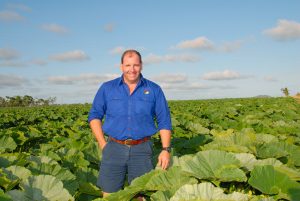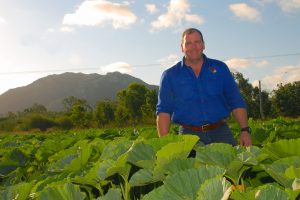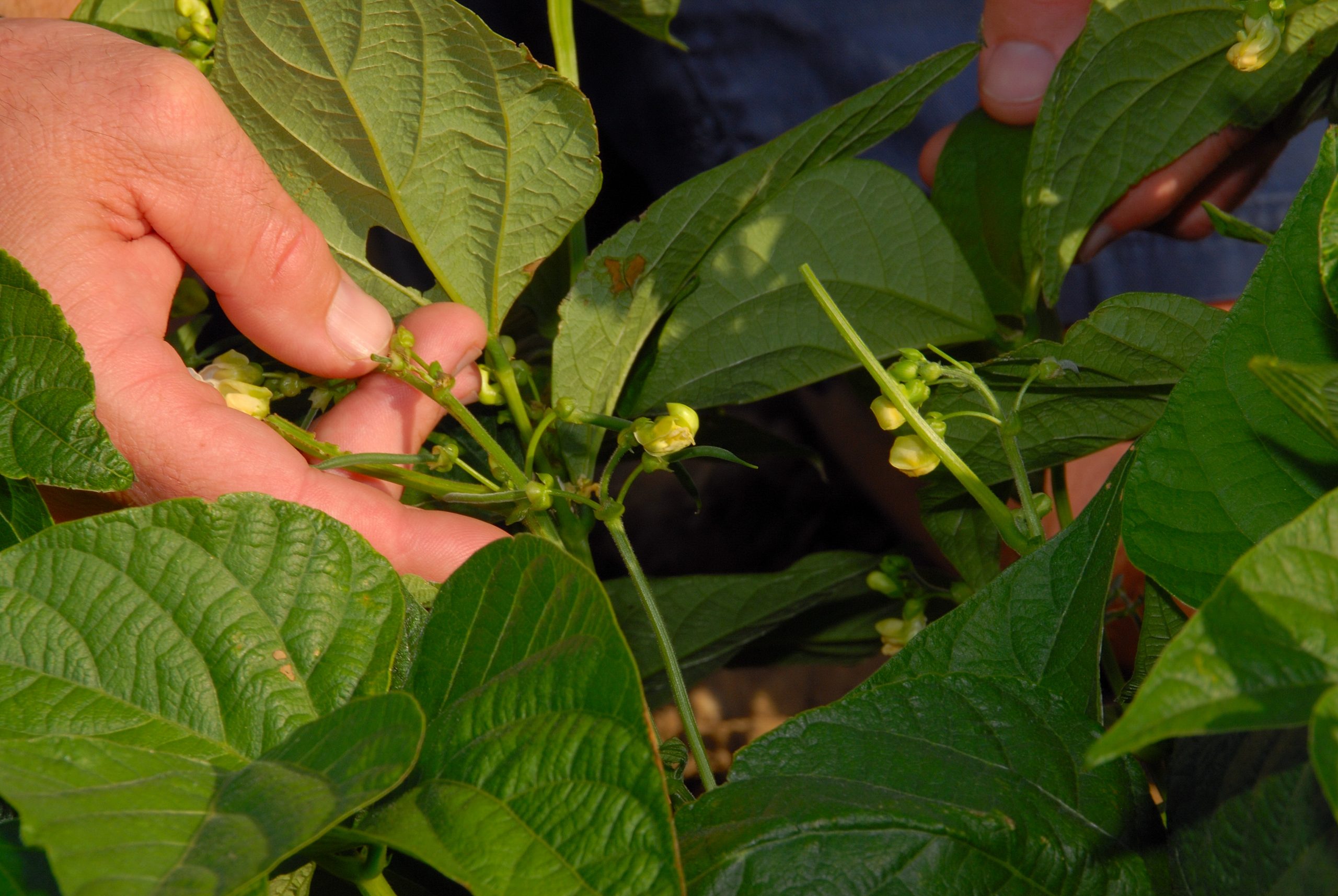Jamie Jurgens: Focus on soil sustainability
Soil health has been a focus of far-north Queensland vegetable grower Jamie Jurgens and his family since they established Jurgens Produce in Bowen in 1975.
According to Jamie, Bowen isn’t renowned for great soil – therefore, to be sustainable and keep businesses financially viable in the long-term, growers have to be smart when it comes to what they are putting in the ground.
Through his involvement in the project Soil condition management – Extension and capacity building (VG13076), a strategic levy investment under the Hort Innovation Vegetable Fund, Jamie has been able to quantify the biological improvement in the soil health of his crops, which include green beans, pumpkin, capsicum, eggplant and tomatoes, over a number of years.

Improving soil health
The Soil Wealth project works with vegetable growers nationally to provide R&D extension services, products and communication on improved soil management.
“With the advent of adding in some bacteria and fungi and trying to build the microflora of the soil, we were able to prove that we have better soil structures, better plants and also an increased level of minerals in our crops. This ensures that we farm in a sustainable way,” Jamie says.
Getting involved in R&D
Jamie stressed the importance of growers participating in a levy-funded project such as Soil Wealth, which was jointly run by Applied Horticultural Research and RM Consulting Group over three years.
“We’re farmers. To be involved with the researchers on this project was a great benefit to us as a business, that’s for sure,” he says.
“It allowed us to have the confidence to expand our production to the extent where we can now market a better product for the end user. This is because of higher mineral levels, having a safer product and being able to have the confidence to grow more acres in a sustainable way.”
On-farm learning
During the Soil Wealth project, Jurgens Produce hosted on-farm demonstrations, which proved insightful for both Jamie and the attendees.
“The biggest thing about this project is getting information out there and helping growers to understand it,” he explains.
“One thing that we learned was that there is a lot of room for improvement in the mainstream production at the moment when it comes to soil health and seeing soil as a future asset of your business. “It has taken us 40 years to get to where we are, but we can’t allow everyone else to take 40 years to get to where they need to be.”
The on-farm demonstrations focused on the whole farming system, including controlled traffic and adding compost and biology to the soil. Attendees were then able to garner the information to see what they could implement on their own farms.
“There’s not just one single fix towards soil health; it’s a mindset change,” Jamie says.
“If people took away something from those demonstrations, it was the fact that they’ve got to open their mind up and have a look within their business and how they might fix it.
“Once you get everything right in the soil and the crops grow properly, the rest can take care of itself.”
Summary
- Through his involvement in the Soil Wealth project (VG13076), Queensland grower Jamie Jurgens was able to use biological strategies to strengthen the soil structure, increase quality and yield, expand production and ultimately improve farm sustainability.
- During the project, Jamie hosted on-farm demonstrations which proved beneficial for both himself and those who attended. It provided an open platform to share information and allow other growers to see the benefits of soil health R&D in action.
- Soil condition management – Extension and capacity building (the Soil Wealth project) was funded by Hort Innovation, using the vegetable research and development levy and contributions from the Australian Government.

This article first appeared in the 2017 Grower Success Stories: Real results from the vegetable R&D levy.

